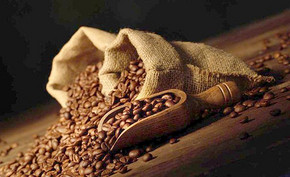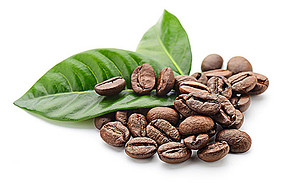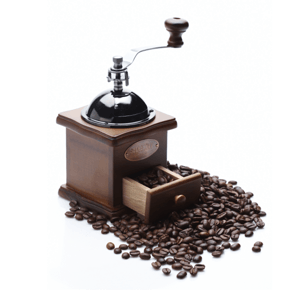Kenya AA coffee brewing tips
Follow the caf é (Wechat official account vdailycom) and found that Beautiful Cafe opened a small shop of its own.
Kenya AA coffee light knows the excellent brewing skills, but does not know how to taste the coffee, then the original delicacy may become tasteless. Some people taste coffee with the taste of the tongue, while others enjoy the aromatic mellow in the mouth. in addition, it depends on the condition of the body and the atmosphere around the coffee. In a word, tasting coffee is a very delicate thing.
When you drink coffee in a coffee shop, you sometimes drink almost half-cold coffee. No matter how good the coffee beans are and how good the brewing skills are, you will lose your appetite for coffee. Drinking while it is hot is a necessary condition for tasting delicious coffee, even on a hot summer day. When the coffee is cold, the flavor will decrease, so when brewing the coffee, in order not to reduce the taste of the coffee, soak the coffee cup in boiling water in advance. The appropriate temperature for coffee drinking is about 50 degrees Celsius.
Taste delicious coffee, in addition to pay attention to the appropriate temperature, but also have the right amount. Drinking coffee is not like drinking or juice, a full cup of coffee, watching it will lose interest in drinking. Generally speaking, it is only seven or eight minutes full for the right amount, moderate amount of coffee will not only stimulate the taste, after drinking it will not have a "greasy" feeling, but endless aftertaste. At the same time, the right amount of coffee can moderately promote the body to recover from fatigue and refresh the mind.

There are different flavors of coffee, so you can't drink three or four cups in a row like tea or cola, but the size of a formal coffee cup is just right. Ordinary coffee to 80-100cc for the right amount, sometimes if you want to drink three or four cups in a row, then it is necessary to dilute the concentration of coffee, or add a lot of milk, but still take into account the degree of physical needs, to add or reduce the concentration of coffee, that is, do not cause greasy or nauseous feeling, and in the allocation of sugar might as well be more changes to make the coffee more delicious.
Kenya is adjacent to Ethiopia, the origin of Arabica coffee trees to the north, but it was not until the beginning of the 20th century that coffee cultivation began. In the 19th century, missionaries introduced Arabica trees from the leaves, but did not plant them in large quantities. It was not until 1893 that coffee was cultivated on a large scale because of the introduction of Brazil's ancient bourbon seeds. That is to say, the current Kenyan coffee is of Brazilian origin. Due to differences in water, climate and treatment, the flavor of Kenya beans is quite different from that of Brazilian beans.
High-quality Kenya coffee is aromatic, full-bodied and fruity, with a rich and perfect taste. Kenyan coffee has a wonderful fruit flavor, with a BlackBerry and grapefruit flavor, is a favorite of many coffee gluttons. This coffee has an excellent medium purity, crisp and refreshing taste. It has a fresh flavor and is most suitable for drinking iced coffee in summer. When tasting this coffee, if it is paired with sour fruits such as grapefruit, it will certainly give me the best coffee experience. "not much like coffee, but rather like fruit tea" is the common feeling of many people about this kind of light-roasted Kenyan coffee.
Brazilian coffee is planted at a low altitude, with soft texture and no obvious sour taste. In contrast, Kenyan coffee trees are mainly concentrated on the slopes near Mount Kenya, about 4 to 6500 feet above sea level, which is suitable for coffee beans to develop their flavor, because the mountain temperature is lower and the growth is slower, and the aromatic components of coffee beans are fully developed. the acidity of the fruit is more obvious and the texture is harder.
In addition, Kenya was an early British colony, and the British had established a set of perfect cultivation and quality control system. After Kenya became independent, the coffee industry was built on its existing foundation. By leaps and bounds, it has become a foreign exchange earning industry in Kenya.
In fact, most coffee is now grown on the flatter slopes around the snow-capped Mount Kenya (the main peak is 5199 meters high). The whole of Kenya is located in the tropical monsoon area, but due to its higher topography, the climate is savannah climate. there are great differences in precipitation seasons. The highest temperature of the year is 22: 26 ℃ and the lowest is 10: 14 ℃. These conditions are very suitable for the excellent growth of Arabica beans.
And high-quality Arabica coffee beans, its suitable growth conditions are on the slopes of 900m ~ 2000 meters above sea level in the tropics, the suitable growth temperature is 15024 ℃, the higher humidity, the annual rainfall is not less than 1500 ml, the soil is fertile and acidic, the volcanic ash is very suitable, and there are appropriate sunshine and shade conditions. based on these characteristics, most of them are located in countries with alpine topography at the Tropic of Cancer. This generation is also known as the world coffee belt, and Kenya happens to be one of them, and the topographical and climatic conditions are very suitable for the growth of high-quality coffee.
Then after tracing back to the origin, it should be a variety. However, what kind of Kenyan AA is the Kenyan AA that I drink with a strong ripe fruit flavor and red wine flavor? What level does it belong to?
The answer is that although Kenya is bordered by Ethiopia, the ancient coffee country, it was not until the beginning of the 20th century that Kenya developed the coffee planting industry due to the intervention of British and French forces. Interestingly, Ethiopia is a natural ancient variety, without the help of variety screening and genetic engineering, and does not apply chemical fertilizers and pesticides. In Kenya, on the contrary, not only coffee varieties are selected or mixed-race improved varieties, but also chemical fertilizers, pesticides and sun-exposed inorganic planting methods. Unexpectedly, the taste spectrum of the coffee is not only not vulgar, but also very delicate, with bright and changeable acidity, good sweetness and thickness, and better cleanliness than other countries.
This is mainly due to Kenya's outstanding variety: SL28/SL34, which has been screened and improved by hybrids, and the unique global double fermentation washing method.
Enter the water to wash the ditch
Soak in a clean pool
Lay scaffolding for drying
After consulting, it was found that this method of treatment was that the coffee bean washing tank in Kenya had two layers, and the process was as follows: in the evening, the defective coffee fruit was removed, the peel was removed, and then the sticky shell beans were poured into the upper fermentation pond. after fermentation all night (but also using dry body fermentation that does not enter the pool), wash the shell beans once in the morning, remove most of the pectin, and then go into the lower clean pool for second fermentation. Then the circulating water should be updated every few hours to avoid mold. Then introduce the water into the ditch to remove the residual pectin. This is not over, the washed beans with shells need to be soaked in the clean pool for more than 12 hours before drying and dehydration. With such a waste of work and water, no wonder the taste spectrum of Kenyan coffee is exquisite.
Important Notice :
前街咖啡 FrontStreet Coffee has moved to new addredd:
FrontStreet Coffee Address: 315,Donghua East Road,GuangZhou
Tel:020 38364473
- Prev

Introduction to the characteristics and Flavor of main varieties of Kenyan Coffee
Following Kaiping (official Wechat account vdailycom) found that Fairview Cafe opened a small shop of its own market for Kenyan coffee: the Kenyan government takes the coffee industry extremely seriously, where it is illegal to cut down or destroy coffee trees. The buyers of Kenyan coffee are world-class high-quality coffee buyers, and no other country can grow and produce as continuously as Kenya.
- Next

The reason for the leading position of Kenyan Coffee in the World ranking
Follow Cafe (official Wechat account vdailycom) found that Kenya caffeine has opened a small shop of its own. The aroma, taste and quality of Kenyan caffeine are well received in the global market, but the industry has long been dominated by Western multinationals. According to market research, only six companies control about 60 to 70 percent of the trade in raw coffee in Kenya, ranking TAYLO WI in the United Kingdom.
Related
- Detailed explanation of Jadeite planting Land in Panamanian Jadeite Manor introduction to the grading system of Jadeite competitive bidding, Red bid, Green bid and Rose Summer
- Story of Coffee planting in Brenka region of Costa Rica Stonehenge Manor anaerobic heavy honey treatment of flavor mouth
- What's on the barrel of Blue Mountain Coffee beans?
- Can American coffee also pull flowers? How to use hot American style to pull out a good-looking pattern?
- Can you make a cold extract with coffee beans? What is the right proportion for cold-extracted coffee formula?
- Indonesian PWN Gold Mandrine Coffee Origin Features Flavor How to Chong? Mandolin coffee is American.
- A brief introduction to the flavor characteristics of Brazilian yellow bourbon coffee beans
- What is the effect of different water quality on the flavor of cold-extracted coffee? What kind of water is best for brewing coffee?
- Why do you think of Rose Summer whenever you mention Panamanian coffee?
- Introduction to the characteristics of authentic blue mountain coffee bean producing areas? What is the CIB Coffee Authority in Jamaica?

